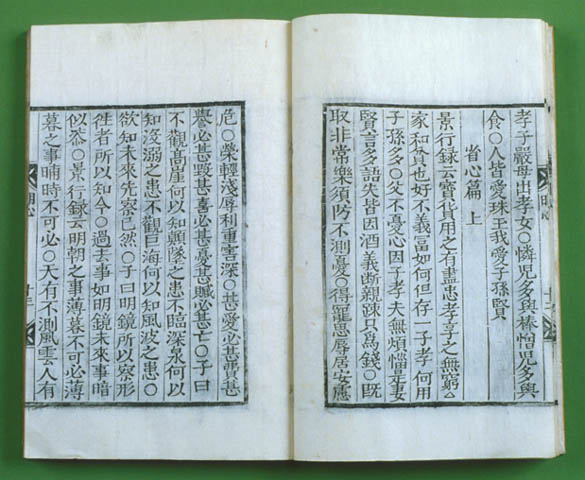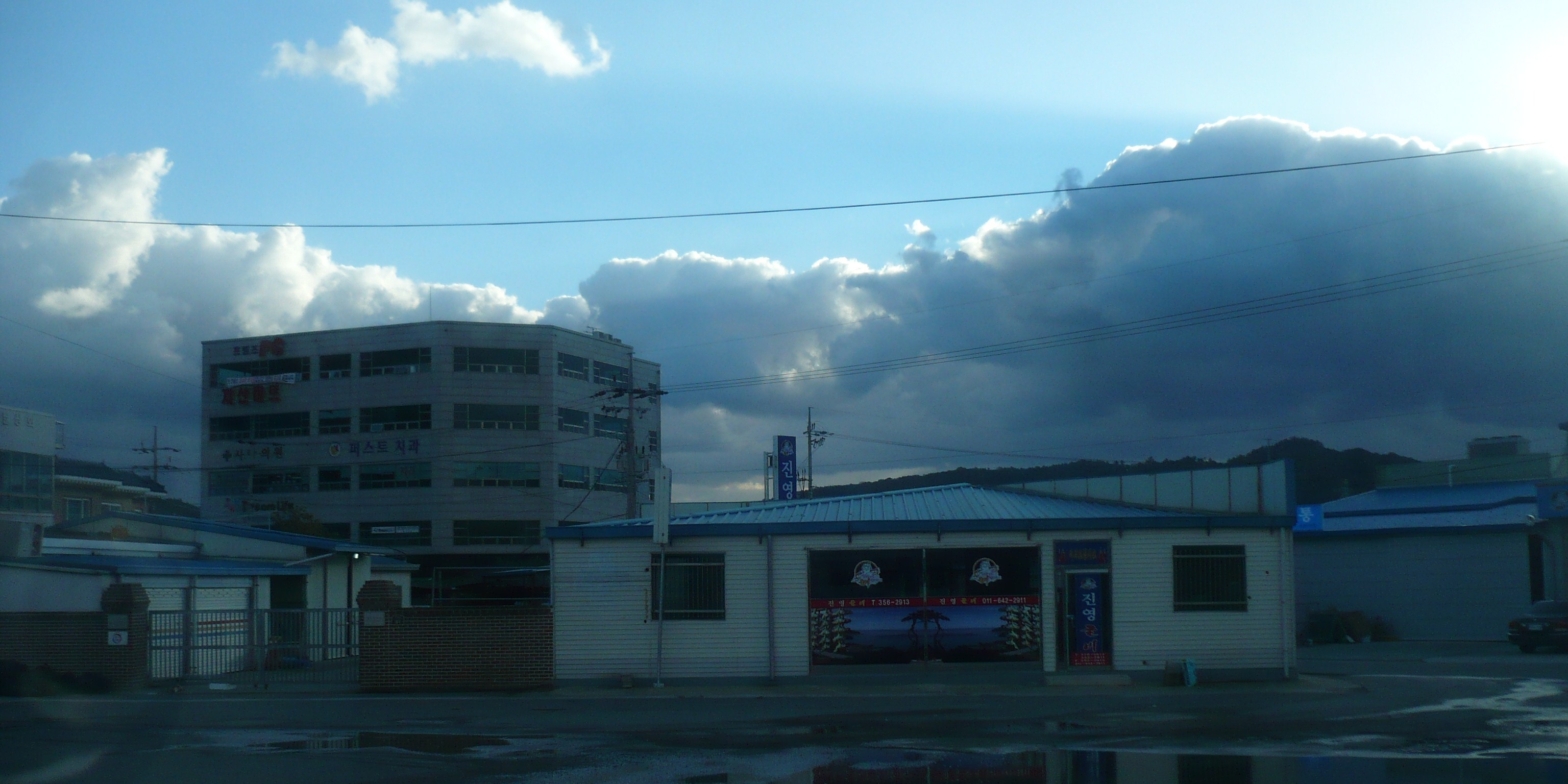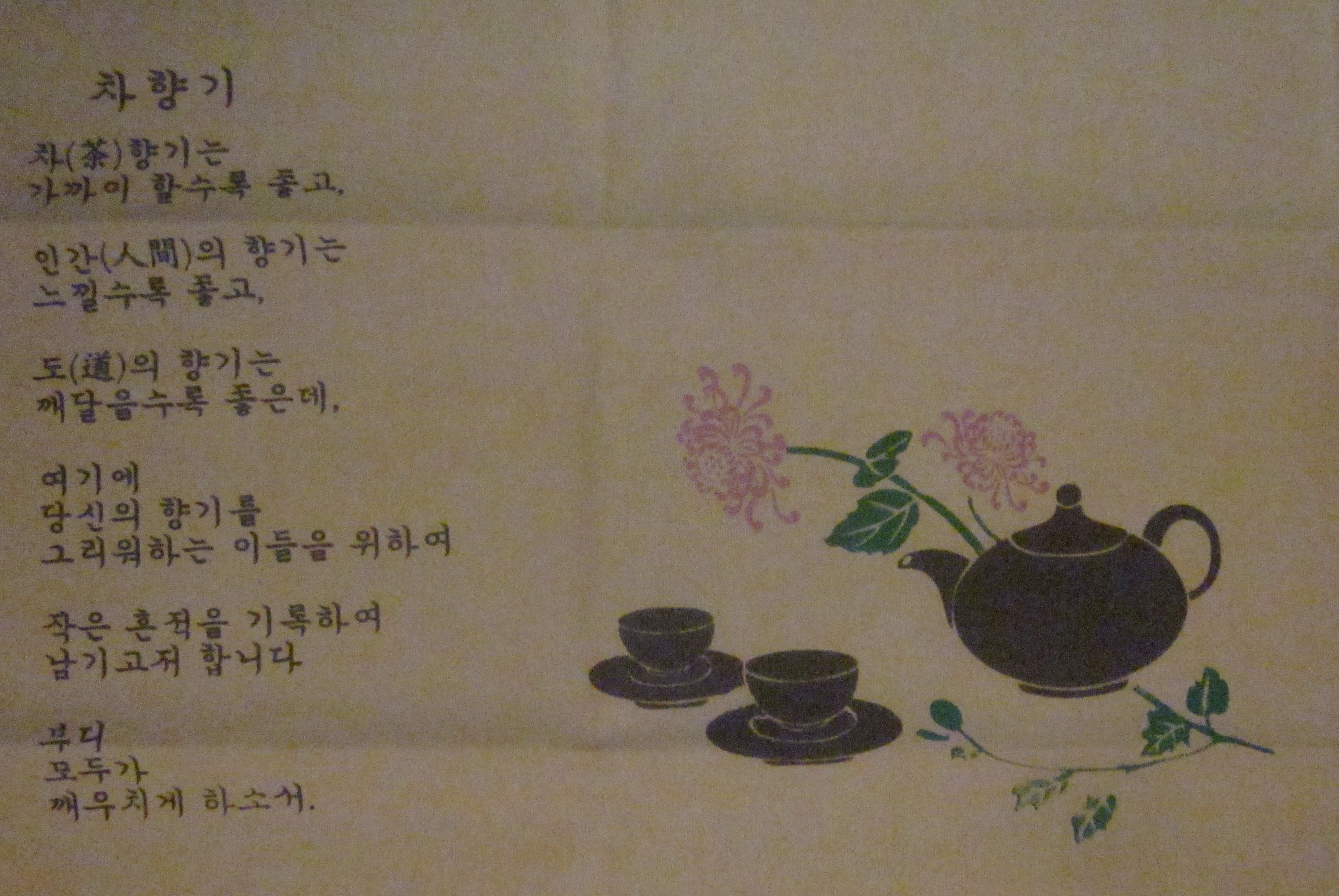This is one of the aphorisms from my aphorism book.
판돈 일곱닢에 노름꾼은 아홉
pan·don il·gop·nip·e no·reum·kkun·eun a·hop
bet seven-penny-ABL gambling-man-TOPIC nine
Nine players betting on seven pennies.
It means too many people fighting over too small a small prize.
This seems like a good summary of the current hagwon market in South Korea. I think if I were to publish a book about the hagwon business, I would make this the title.
[daily log (11 pm): walking, 6 km]
Category: 한국어 속담 (Aphorisms & Proverbs)
Caveat: 간장공장 공장장은 강공장장이고…
Right before my hospitalization, I had decided to do a series of Korean tongue-twisters, in the same way I have been doing aphorisms and proverbs. I had this little cache of them, half-completed, in my blog queue, which I’m now finally getting around to working through.
간장공장 공장장은 강공장장이고 된장공장 공장장은 장공장장이다.
간장공장 공장장은 강공장장이고 gan·jang·gong·jang gong·jang·jang·eun gang·gong·jang·jang·i·go soy-sauce-factory plant-manager-SUBJ Mr-Gang-plant-manager-is-CONJ
된장공장 공장장은 장공장장이다 doen·jang·gong·jang gong·jang·jang·eun jang·gong·jang·jang·i·da soybean-paste-factory plant-manager-SUBJ Mr-Jang-plant-manager-IS
Mr Gang is the soy sauce factory plant manager and Mr Jang is the soybean paste factory plant manager.
Caveat: 업은 아기 삼년 찾는다
This is an aphorism from my aphorism book.
업은 아기 삼년 찾는다
eop·eun a·gi sam·nyeon chat·neun·da
carry-on-back-PRESPART baby three-years search-PRES
[Like] looking for three years for the baby one is carrying on one’s back.
This is about the same as “cannot see the forest for the trees” but also is about that tendency we have to look for things we already are holding, as when I’m looking for my glasses while wearing them.
Unrelatedly, what I’m listening to right now.
Smashing Pumpkins, “Disarm.” Michelle hated the Smashing Pumpkins, yet this song is strongly associated in my memory with our first full year together, because it was on the radio constantly during my drives to work (at UPS in Northeast Minneapolis) or class (at the Univ. of Minnesota).
[daily log (1100 pm): walking, 1 km – everything was so slippery, so I gave up on my walk]
Caveat: 누운 소 타기
This is an aphorism from my aphorism book.
누운 소 타기
nu·un so ta·gi
lie-down-PASTPART cow ride-GER
[As easy as] riding a lying-down cow
“As easy as pie.” I never understood this English aphorism – why is pie, specifically, easy?
I think riding a lying-down cow sounds pretty easy.
Caveat: 절에가면 중인체 촌에가면 속인인체
This is an aphorism from my aphorism book.
절에가면 중인체 촌에가면 속인인체
jeol·e·ga·myeon jung·in·che cheon·e·ga·myeon sok·in·in·che
temple-IN-go-WHEN monk-be-PRETEND village-IN-go-WHEN commoner-be-PRETEND
When in the temple, make like a monk, when in the village, make like a commoner
Essentially, this is equivalent to the English aphorism “when in Rome, do as the Romans.” I have been a fairly loyal practitioner of this style of behavior, I think – at least, to the best of my ability.
Caveat: 청보에 개똥
This is an aphorism from my book of aphorisms.
청보에 개똥
cheong·bo·e gae·ttong
blue-wrapping-paper-IN dog-shit
[…like] dog shit in blue wrapping paper.
This is like that wonderful English aphorism about putting lipstick on a pig – the outside doesn’t match the inside: the problem of false advertising.
What’s the solution? Transparency, transparency, transparency. I guess I’m thinking about work.
Want to hear something funny? Typically when I’m typing up these aphorisms, I will run a google search on them, just out of curiosity or to see if anything interesting comes up. I will do a web google search and an image google search.
Guess what the first image was that came up when I put this aphorism in to google? A picture of former president Lee Myung-bak (이명박) giving a speech, with the title “청보에 개똥을 쌀 놈, 이명박” (“guy who wraps dogshit in blue wrapping paper, Lee Myung-bak.”).
Caveat: 어느 구름에서 비가 올지
This is an aphorism from my aphorism book.
어느 구름에서 비가 올지
eo·neu gu·reum·e·seo bi·ga ol·ji
which cloud-FROM rain-SUBJ come-FUTSPEC
[One doesn’t know] from which cloud the rain will come.
This wasn’t hard to understand, but I think there is something missing to make this an actual sentence. My grammar “bible” tells me that an ending such as “-ㄹ지” should come in a context such as “V-ㄹ지 모르다” [one doesn’t know V will happen]. I think the “doesn’t know” is missing but implied here. I didn’t know what to call the ending, so I labeled a “future speculative” – I have often struggled with what the “지” really is – it’s a kind of a “pre-negative” or subjunctive marker, in my linguistically semi-informed but Koreanically semi-ignorant view.
Caveat: 대가리 잡다가 꽁지를 잡았다
This is an aphorism from my aphorism book.
대가리 잡다가 꽁지를 잡았다.
dae·ga·ri jap·da·ga kkong·ji·reul jap·ass·da
head seize-TRANSF tail-OBJ seize-PAST
Seizing for the head and instead catching the tail.
According to the book, this means something like “big ambition, small success.”
I feel like this could be a title for my autobiography.
Caveat: 등잔 밑이 어둡다
Yesterday the two TEPS반 refugee boys (by which I mean a cohort that once had 10 students is reduced to only two) were reduced further to just Jaehwan. Hyeonguk, the other student, had disappeared, and we couldn’t find him. The front-desk-lady didn’t know where he was. He’d simply disappeared.
So Jaehwan and I had class alone, the two of us. I always feel weird trying to conduct a “normal” class with only one student sitting in front of me. I feel like both of our time could be better used in some other way, at that point. But anyway…
We worked our way through the questions, and shared some joking remarks about how when Hyeonguk showed up, he’d have a lot of homework piled up (since the rule I have for this class is that the dictation homework is waived for questions with correct on-the-spot answers in class, and since he wasn’t around, obviously none of the homework was waived).
I speculated that Hyeonguk may have been abducted by aliens. I had to explain this by drawing a picture (at right), since Jaehwan was unfamiliar with the pop-culture-referencing idiom “abducted by aliens.”
Then about 20 minutes in, Curt reported in to say that Hyeonguk had been located – in the next-door classroom, where he’d decided to “audit” without telling anyone. I’m fine with that – these things happen.
Jaehwan and I shared a laugh about it, since we’d really had no idea where he’d gone. He knows I study Korean aphorisms, sometimes, so he took the opportunity to tell me one relevant to the situation.
등잔 밑이 어둡다
deung·jan mit·i eo·dup·da
lamp base-SUBJ be-dark
It’s dark at the base of the lamp.
The English expression might be, “right under one’s nose.” I wrote it on the board, to be able to remember it.
Caveat: 십년이면 산천도 변한다
This is an aphorism from my book of aphorisms.
십년이면 산천도 변한다
sip·nyeon·i·myeon san·cheon·do byeon·han·da
ten-years-be-IF mountain-stream-TOO change-PRES
If ten years pass, even the mountains and streams change.
With time, everything changes.
I took this picture in September of 2010 at Mudeung Mountain (무등산) near Gwangju.
Caveat: 보기 좋은 떡이 먹기에도 좋다
My friend sent me this aphorism in a text message. He was using it to make a sort innuendo about dating between men and women.
보기 좋은 떡이 먹기에도 좋다
bo·gi joh·eun tteok·i meok·gi·e·do joh·da
look-GER be-good-PPART ricecake-SUBJ eat-GER-ABL-TOO be-good-PRES
Good-looking rice cakes are good to eat too.
It’s pretty much self-explanatory.
Picture at right shows a web-found image of a vast variety of sweet and savory rice cakes (떡 [tteok]).
To be honest, I don’t like many of these things, but there are certain types I find quite delicious – mostly the plainer varieties found in soups or tteokbokki.
Caveat: 소리 없는 고양이 쥐 잡는다
This is an aphorism from my aphorism book.
소리 없는 고양이 쥐 잡는다.
so·ri eops·neun go·yang·i jwi jap·neun·da
noise not-have-PRESPART cat mouse catch-PRES
The quiet cat catches the mouse.
A quiet person is more successful than a noisy person.
[daily log: walking, 5 km]
Caveat: 말안하면 귀신도 모른다
This is an aphorism from my aphorism book.
말안하면 귀신도 모른다.
word-not-do-IF ghost-TOO not-know-PRES
If [you] don’t speak, not even the ghost knows.
That is to say, speak your heart, or no one can know it.
Caveat: 신선노리에 도끼 자루 썩는줄 모른다
This is a proverb from my proverb book.
신선 노리에 도끼 자루 썩는 줄 모른다.
sin·seon no·ri·e do·kki ja·ru sseok·neun jul mo·reun·da
faerie play-LOC ax handle rot-GER likely-fact not-know-PRES
[A man] at play with the faeries doesn’t realize [his] ax-handle is rotting.
The book explains that it is based on a fairy tale about a woodcutter who goes into the mountains and plays with wood nymphs or sprites and forgets the world, and only awakens from his reverie as a bent old man with a rotting ax-handle. It seems similar to the story of the lotus-eaters in Homer, but there are many stories of people losing track of their regular lives in lost reveries by falling under enchantment.
In looking up the proverb online, there seems to be a more common grammatical variation on this proverb that begins “신선 놀음에…” – this is just substituting 놀음 (a gerund of the verb “to play”) for the related noun meaning “play”.
I doubt this temple-panel picture has anything to do with the story, but it seemed to share something of the same atmospherics, at least to my mind.
Caveat: 훌륭한 학생이라 믿어주면 그들은 그것을 증명해준다
This aphorism was on posted on the wall of the staff room, not far from my desk. I decided to figure it out.
훌륭한 학생이라 믿어주면
be-brilliant-PASTPART student-be-[?] believe-give-COND
그들은 그것을 증명해준다
that-PL-TOPIC that-thing-OBJ confirm-give-PRES
When you believe your students are brilliant they comfirm it.
I have no idea how the -이라 ending on the first clause’s be-verb (copula) works, but I’ve always had the impression the copula forms with -ㄹ- are a sort of residual subjunctive that doesn’t appear in any other forms, in which case it makes sense. I’m sure it has some specific grammatical name, but I don’t know what it is.
Anyway it’s a pretty good aphorism to see on the wall of a school staff room.
[daily log: walking, 6.5 km]
Caveat: 글씨 못쓰는 놈 붓 고른다
Here is a proverb from my book-o-proverbs.
글씨 못쓰는 놈 붓 고른다.
geul·ssi mot·sseu·neun nom but go·reun·da
handwriting can’t-write-PRESPART guy brush fix-upon-PRES
A guy who can’t do handwriting fixes upon his brushes.
“A bad carpenter quarrels with his tools” might be an equivalent proverb in English. The meaning is that people who are bad at their jobs frequent complain about the conditions.
This makes me think of the typical English teacher working in Korea, for some strange reason. I’ve been spending more time than usual (and thus too much time) surveying the blogs and neverending pessimistic commentary of EFL teachers, lately, I suppose.
Caveat: 어느새 가을
Below is the poem that was attached to my Chuseok gift ham that I received from work, which I mentioned the other day. I have no idea if this an original composition from my boss or one of my coworkers, or if it’s a “traditional” poem, or just a widely-circulated “hallmark style” sentiment.
어느새 가을
올해도 추석이 찾아왔습니다
가을햇살처럼 풍요롭고
여유로운 마음으로
감사하는 일들이
많은 날들이었으면 좋겠습니다
I decided to try to translate it. Here is my effort (I used the googletranslate but then spent some time tweaking the results substantially, trying to get away from the absurdist tone that most googletranslate outputs seem to have).
so soon, the fall
the harvest moon has come this year
it nourishes like fall sunlight
and in our restful heart
are things that we are thankful for
we hope they will exist for many days
Merry Chuseok, everyone!
[daily log: walking, 4 km]
Caveat: 萬物博士
This is one of those four-character Chinese phrases, called 성어사자 (四字成語). I was introduced to it by a friend a while ago. I kept meaning to put a little blog entry about it so here it is.
萬物博士
만물박사
man-mul-bak-sa
I actually had an impossible time trying to figure out the meaning of the individual characters. I think my focus and energy was insufficient to the task. I dinked around the online hanja dictionary for awhile and gave a sigh and gave up. So I’m just going to throw the expression out there in toto.
But it’s overall meaning is something like “jack of all trades” or even “polymath” or “walking dictionary.” My friend was applying it to me, shaking his head ruefully. I guess I get his point. I’m flattered, though.
[daily log: what? it’s Sunday.]
Caveat: 참고 또 참으며 경계하고 또 경계하라
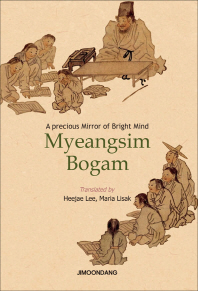 I have a book entitled Myeangsim Bogam, which is an annoying romanization of 명심보감. The “proper” romanization (meaning following the official “Revised Romanization”) would be Myeongsim Bogam. I guess it’s only the first syllable that’s off.
I have a book entitled Myeangsim Bogam, which is an annoying romanization of 명심보감. The “proper” romanization (meaning following the official “Revised Romanization”) would be Myeongsim Bogam. I guess it’s only the first syllable that’s off.
Anyway, it’s a parallel translation of a Confucian “reader” of sorts that was widely printed in circulated in pre-Modern Korea (meaning during the Joseon dynasty). The reader, of course, originally circulated in Chinese – which is what educated people were expected to read in the Joseon time. So this translation I have is three-way: it has Chinese, Korean, and English.
It’s a kind of book of aphorisms and proverbs along with some parables, I guess. It was intended and read as an instruction book of virtue for Joseon’s Confucian society – it was often the first book students read after mastering the basic “1000 characters” of Chinese.
So here is an aphorism from that book that intrigued me a little bit – maybe because it was one I thought I could translate from Korean more easily – in fact, I felt as if I could maybe do a little bit better job than what the book offers, which is: “Bear and bear again, care and care again. I you do not bear and care, then trivial things become important cases.” That translation is not really inaccurate, as far as I can judge, but I think a close translation would better serve the intended meaning.
참고 또 참으며 경계하고 또 경계하라.
be-patient-CONJ too be-patient-WHILE be-vigilant-CONJ too be-vigilant-IMPER.
참지 못하고 경걔하지 않으면 작은 일이 크게 된다.
be-patient-PRENEG cannot-CONJ be-vigilant-PRENEG be-not-IF be-small-PPART thing-SUBJ big-ADV become-PRES.
Be patient, be patient and meanwhile be vigilant, be vigilant. If one cannot be patient and one is not vigilant, small things become big.
This is perhaps true. I’ve been troubled by my lack of patience, recently. I will work harder.
Here is the original Chinese, for reference (note that I am merely copying this – I am not able to read it) – with the syllables rendered in hangul to aid in reading or looking them up:
得忍且忍 得戒且戒 不忍不戒 小事成大
득인차인 득계차계 불인불계 소사성대
[daily log: walking, 5.5 km]
Caveat: 우선 먹기는 곶감이 달다
My friend taught me this proverb yesterday, as we were discussing the habit of procrastination.
우선 먹기는 곶감이 달다
precedence eat-GER-TOPIC dried-persimmon-SUBJ be-sweet
[When] eaten first, the persimmons are sweet.
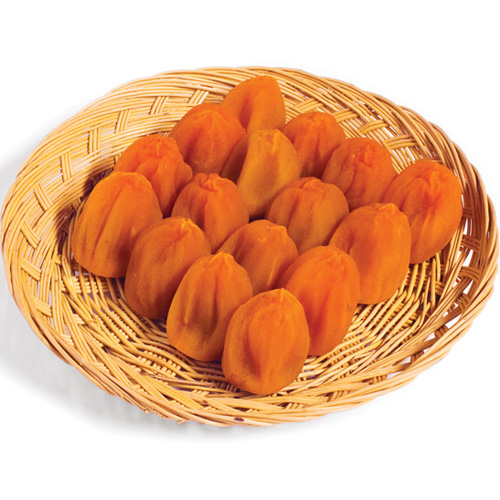 One place I found this translated, it was given as equivalent to the old English proverb, “Please your eye and plague your heart.” It seems to be about doing the easy stuff first.
One place I found this translated, it was given as equivalent to the old English proverb, “Please your eye and plague your heart.” It seems to be about doing the easy stuff first.
I don’t actually like dried persimmons (or even fresh ones) all that much. So maybe this particular proverb doesn’t work for me.
I have been very tired lately. I think we all know why. I barely survived 2 hours at work today before I gave up and stumbled home. Helen asked me why I’m even coming; I said I need the structure and focus. It gives me a sense of purpose and is a bit of a distraction from this business of just being sick.
Caveat: 우리가 살고 있는 세상이 꿈인지 현인지 알 수가 없다
 I was sharing another of my favorite Korean movies with Andrew, earlier today, so we watched 빈집 (“empty houses”). I really like this movie, but this time around, I was struck by how much of the movie was obviously filmed in Ilsan – I would guess about 50% of the outdoor shots were in neighborhoods and locations within walking distance of my apartment. That adds some interest to the movie, I guess. If you watch it, basically any scene in a flat neighborhood (i.e. no hills) would be Ilsan.
I was sharing another of my favorite Korean movies with Andrew, earlier today, so we watched 빈집 (“empty houses”). I really like this movie, but this time around, I was struck by how much of the movie was obviously filmed in Ilsan – I would guess about 50% of the outdoor shots were in neighborhoods and locations within walking distance of my apartment. That adds some interest to the movie, I guess. If you watch it, basically any scene in a flat neighborhood (i.e. no hills) would be Ilsan.
The movie concludes with an epigraph that goes:
우리가 살고 있는 세상이
we-SUBJ live-PROG-PRESPART life-SUBJ
꿈인지 현인지 알 수가 없다..
dream-be-IF presentmoment-be-IF know-FUTPART possibility-SUBJ thereisnot
We cannot know whether the life we live is a dream or incumbent [“real”].
This was kind of hard to translate – because I didn’t let myself go back and look at the translation given in the subtitles in the movie. But I think I got it right – the key is a grammar point on page 55 in my “grammar bible” (Korean Grammar for International Learners) about using two parallel clauses ending in -ㄴ지 with the verb 알다 to indicate “a choice between two uncertain or unknown possibilities.”
Caveat: 백옥이 먼지속에 묻힌다
Here is a Korean proverb from my book of proverbs.
백옥이 먼지속에 묻힌다
white-jewel-SUBJ dust-pile-LOC be-hidden-PRES
A white jewel is hidden in the dust.
The book says it means a person of integrity retains his integrity even in misery.
I always liked the proverb about integrity that goes:
Integrity is what we do when no one is watching.
Caveat: 미치지 않으면 미치지 못한다
I stayed at work for basically the regular schedule – 2:30 to 10:00. I didn’t teach any classes, but I did some useful things, discussed some things with the boss, finished editing and posting the speech test videos from last week, talked to a lot of students in the corridors. I didn’t, in fact, feel compelled to surf the internet, although I did experience some boredom.
So there I was, sitting at work, and a little bit bored, because I was waiting on something that I needed to do later on but I didn’t have much to do right at that moment.
Looking for something to do, my eye landed on one of the aphorisms Curt has posted on the wall near the door.
미치지 않으면 미치지 못한다
michi-ji anh-eu-myeon michi-ji mot-han-da
be-passionate-PRENEG not-be-IF reach[something]-PRENEG can’t-do-PRES
This expression relies on the double-meaning of the verb 미치다, which can mean both “to be crazy” (i.e. passionate) as well as to reach some goal.
Hence, quite loosely, “If we are not passionate, we will never reach any goal.“
Caveat: Dichotomia; i.e. 이분법(二分法)에 대한 경계(警戒)
I don’t know why I feel the urge to try to understand such difficult things in Korean when I can still barely communicate my needs in a restaurant. I guess it’s just more interesting to me.
I was somewhat randomly poking around in my Korean-English Dictionary of Buddhist Terms and ran across this phrase:
이분법(二分法)에 대한 경계(警戒)
dichotomy-LOC face-PASTPART caution
I would translate this, roughly, as:
Beware of Dichotomies
Which is awesome, as it could be caveat dichotomia in Latin.
The context was an entry on 시비구불선 (是非俱不禪) on p. 645 of my dictionary – the mistake of meditating on right and wrong, more or less.
Here’s what the rest of the Korean says:
시비는 참선과 거리가 멀며,
right/wrong-TOPIC meditation-WITH distance be-far-WHILE
시비가 있는 곳엔
right/wrong-SUBJ have-PRESPART place-AT-TOPIC
진리가 있을 수 없다.
truth-SUBJ have-POSSIBLE-NOT
The English on the same entry isn’t really a translation – it’s its own thing:
Meditation has nothing to do with arguments: Where there is an argument about right or wrong, this and that, there is no wisdom or truth.
The gist is the same, but the detailed meaning seems widely variant.
Here is a random picture: the luminous November sky in Hongnong, 2010.
Caveat: 구렁이 담넘어가듯 한다
Here, I return to my long-standing habit of occasionally trying to translate Korean proverbs. And, for the first time in a long time, this proverb is apropos of nothing in particular.
구렁이 담넘어가듯 한다
gu-reong-i dam-neom-eo-ga-deut han-da
snake fence-go-over-seeming do-PRES
Like a snake coming over the fence.
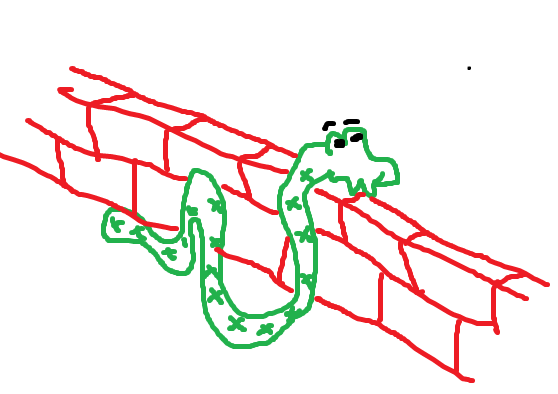 Some people sneak around and get away with stuff. “Like a thief in the dark” is maybe an English phrase with similar usage.
Some people sneak around and get away with stuff. “Like a thief in the dark” is maybe an English phrase with similar usage.
It reminds me of that Bob Dylan song, “Man Gave Names To All The Animals.”
I drew this horrible picture of a sneaky snake sneaking over a fence, using MS Paint, in just under two minutes, so that this fine blog-post could be accompanied by an image.
Caveat: 한국관광공사 곽진광 관광과장
I had decided to do a series of Korean tongue-twisters, in the same way I have been doing aphorisms and proverbs. I haven’t done one in a while but I have a few waiting still in the “almost-ready-to-post” box, which I’m cleaning out now that I’m home.
한국관광공사 곽진광 관광과장
han·guk·gwan·gwang·gong·sa gwak·jin·gwang gwan·gwang·gwa·jang
korea-tourism-corporation Gwak-Jin-Gwang tourism-manager
The Korean Tourism Organization’s tourism manager, Mr Gwak Jin-gwang
 It’s not a sentence, just a noun phrase. This tongue-twister isn’t that hard, except that I don’t have full confidence that 곽진광 [gwakjingwang] is just a name. If it’s a not a name, then my translation is poor and missing something important, but assuming it is a name it makes perfect sense, so I’m going to go with that.
It’s not a sentence, just a noun phrase. This tongue-twister isn’t that hard, except that I don’t have full confidence that 곽진광 [gwakjingwang] is just a name. If it’s a not a name, then my translation is poor and missing something important, but assuming it is a name it makes perfect sense, so I’m going to go with that.
caveat: 會者定離. 去者必反.
My roommate and now close friend Mr Cho taught me the following Buddhist proverb, today – despite himself being a catholic deacon or something like that. Thats the sort of openmindedness that warms my heart.
會者定離. 去者必反.
회자정리. 거자필반.
hoe·ja·jeong·ri. geo·ja·pil·ban.
meet-people-intention-part. go-people-again-come.
This pair of sinisms refer to the great wheel: we all are cycling through the rebirths and deaths. “We meet and then we part again. People go and people come again.”
Incidentally, the vow of silence has been relaxed somewhat, with doctors’ permission.
caveat: 세상은 넓고 할 일은 많다
i cant do detailed translations when posting from my phone as is my normal custom. but i didnt want to give up my proverbs entirely. andrew borrowed a notebook of mine and we found this aphorism in the first page.
세상은 넓고 할 일은 많다.
roughly. “the world is big, theres a lot of work to be done.”
Caveat: 그냥 제 결에서 걸으면서 친구가 되어 주세요
제 앞에서 걷지 마세요. 제가 따라가지 않을지도 몰라요.
제 뒤에서 걷지 마세요. 저는 당신을 이끌지 않을지도 몰라요.
그냥 제 결에서 걸으면서 친구가 되어 주세요.
I thought this was a Korean proverb and I was all set to try to translate it, but then I saw it attributed to Albert Camus, with a longer lead-in to the last sentence that I had first run across. I did some googling.
Camus seems implausible as an author, just on the basis of its philosophical content. I suppose it’s some kind of popular poem or aphorism. It’s widely distributed online and definitely not originally Korean. I saw someone attributing it to George Sand – this seems slightly more plausible. And several online notes confirmed that attributing it to Camus is an error and one spot suggested it was an old Jewish children’s song.
In any event, I don’t need to translate it, as I found numerous versions in French and English online already for the longer quote.
In English:
Don’t walk behind me: I may not lead.
Don’t walk in front of me: I may not follow.
Just walk beside me and be my friend.
In French:
Ne marche pas devant moi, je ne suivrai peut-être pas.
Ne marche pas derrière moi, je ne te guiderai peut-être pas.
Marche juste à côté de moi et sois mon ami.
Caveat: 피할수 없는 고통이라면 차라리 즐겨라
Curt taught me this aphorism while we were in the waiting room the other day. It may be something associated or of frequent occurance in the military – which is essentially a universal experience for Korean males. The way Curt explained it, however, he implied it was Buddhist. It makes equal sense in both contexts.
피할 수 없는 고통이라면 차라리 즐겨라
pi.hal su.eops.neun go.tong.i.ra.myeon cha.ra.ri jeul.gyeo.ra
avoid-FUTPART able not-have-PRESPART pain-be-IF rather enjoy-IMPER
If pain is unavoidable just enjoy [life].
Of course. To the best of my ability.
I said it to the doctor as we were concluding our interview. He said something to the effect of, “I never met a foreigner like you before.” I guess I was pleased by that, in a strange way.
Unrelatedly (or is it?)… from 9gag.
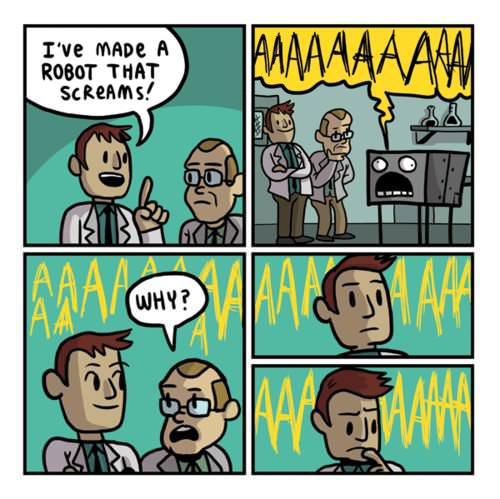
Caveat: Tea Poem On Cloth
As I mentioned, I went shopping last Sunday, where we stopped at the Buddhist bookshop next to the Jogye temple near Insadong. I mentioned that I had bought a Korean-English dictionary of Buddhist terms. Another thing I bought were some of what might termed “aphorisms-painted-on-cloth” – I guess I like these though I’m not sure what I do with them. I’ve gifted them to friends sometimes.
But first, I study them – I try to find out what they’re about. Here is one of them.
Here is a trascription. I could not find this poem or prayer (not sure which to call it) online with English translation, so the translation is entirely mine – please forgive defects (I welcome feedback to improve the translation)
차향기
Tea fragrance
차(茶)향기는
가까이 할수록 좋고,
The closer you are to the scent of tea, the better,
인간(人間)의 향기는
느낄수록 좋고,
The more you experience the scent of humanity, the better,
도(道)의 향기는
깨달을수록 좋은데,
The more you attain the scent of the right path, the better, too
여기에
당신의 향기를
그리워하는 이들을 위하여
Here, caring for those yearning for your scent
작은 흔적을 기록하여
남기고 저 합니다
Recording small traces, prepare to leave [it] behind.
부디
모두가
깨우치게 하소서.
Please let everyone find enlightenment.
I was so stumped by the second line of the penultimate stanza that for a time I had utterly given up. Googletranslate says “To leave me” which is just dictionary madness – look up some syllables and assign meaning then chain them together. But “저” as “me” is never a suffix. Googletranslate is useless.
Then I decided to break down and use the frustrating but exhaustive Samuel E. Martin book. I suspected -고저 is some kind of archaic verbal ending because then 남기 can be the stem of the verb 남기다 “to leave behind.” Sure enough, there it was: -koce “be willing to, intend to, get ready to, prepare to” with obvious examples using 하다 as the main auxiliary.
The very last verb+ending, 하소서, really stumped me too. It took a lot of dinking around the internet before I realized I could see if Martin had it, too – and it was there, alphabetized (in his crazy way) under the romanization -usose. Sure, that’s obvious. It’s a kind of super-high deferential imperative (“Let… “), common in e.g. Bible translations. And in Buddhist tea-prayers, too, I guess.
My lesson for the day: don’t avoid Martin just because his romanization is tedious and difficult.
Caveat: 김서방네 지붕위에 콩깍지가…
I’ve decided to do a series of Korean tongue-twisters, in the same way I have been doing aphorisms and proverbs.
김서방네 지붕위에 콩깍지가 깐콩깍지냐 안깐콩깍지이냐 ?
김서방네 지붕위에 콩깍지가
kim·seo·bang·ne ji·bung·wi·e kong·kkak·ji·ga
kim-mister-“chez” roof-ontop-LOC bean-pod-SUBJ
깐콩깍지냐 안깐콩깍지이냐
kkan·kong·kkak·ji·nya an·kkan·kong·kkak·ji·i·nya
husk-PASTPART-bean-pod-OR not-husk-PASTPART-bean-pod-OR
Is the bean pod on Mr Kim’s roof a husked bean pod or an unhusked bean pod?
There some things we must ask, in life. This may not be one of them.
Caveat: 저기 가는 상장사가 헌 상장사냐 새 상장사냐
I’ve decided to do a series of Korean tongue-twisters, in the same way I have been doing aphorisms and proverbs.
저기 가는 상장사가 헌 상장사냐 새 상장사냐?
저기 가는 상장사가
jeo·gi ga·neun sang·jang·sa·ga
There go-PRESPART table-merchant-SUBJ
헌 상장사냐 새 상장사냐
heon sang·jang·sa·nya sae sang·jang·sa·nya
old table-merchant-OR new table-merchant-OR
Is that table-merchant there an old table-merchant or a new table-merchant?
Actually, I have zero percent confidence about the choice of “table” as the meaning for 상. My tutor and I figured the merchant was selling something, and 상 has a lot of possible meanings – assuming it’s a merchant.
 The fact that it stumped a native speaker means I don’t feel bad about this. Table merchant makes some sense – maybe not nowadays, but I can easily imagine in olden times a man with some of Korea’s little wooden tables strapped to his back, going from town to town selling them at the 5-day markets.
The fact that it stumped a native speaker means I don’t feel bad about this. Table merchant makes some sense – maybe not nowadays, but I can easily imagine in olden times a man with some of Korea’s little wooden tables strapped to his back, going from town to town selling them at the 5-day markets.
Here’s my little table at right, that I bought from a streetside table merchant (or was it a more generalized housewares vendor?) in Suwon in 2010. I have no idea if he was an old table merchant or a new one.
I feel a sort of apprehension: tomorrow I return to get the results of my biopsy and probably get a CT scan. I received a text message this morning on my phone from the hospital:
WAY JARED 님의 정확한 조직 검사진단을 위하여 검사가 추가 시행될 예정입니다.
검사결과는 다음 외래 내원시 수납 후 확인하실 수 있습니다. – 국립암센터-
본 검사는 6월 19일 접수한 조직으로 검사가 진행되오니 내원하실 필요는 없습니다.
Basically, it’s telling me that they want to do additional “diagnostic tests” (검사진단) and that it can be done when I come in for my next appointment (which is tomorrow morning). I don’t think this is really very encouraging, though I suppose I could conclude that it means “they don’t really know” which is better than “they’re certain.”



